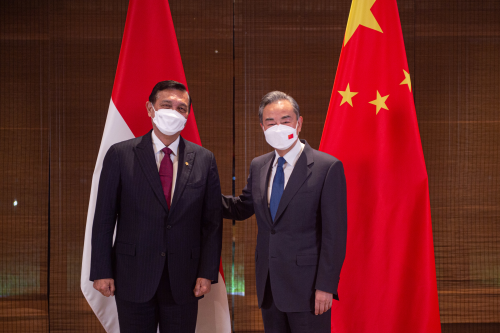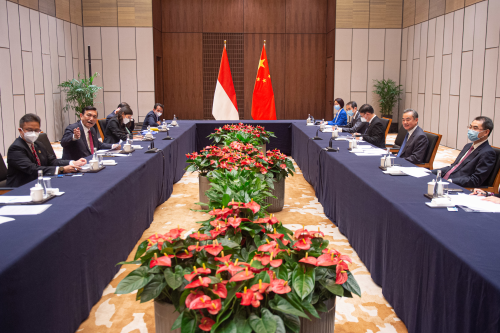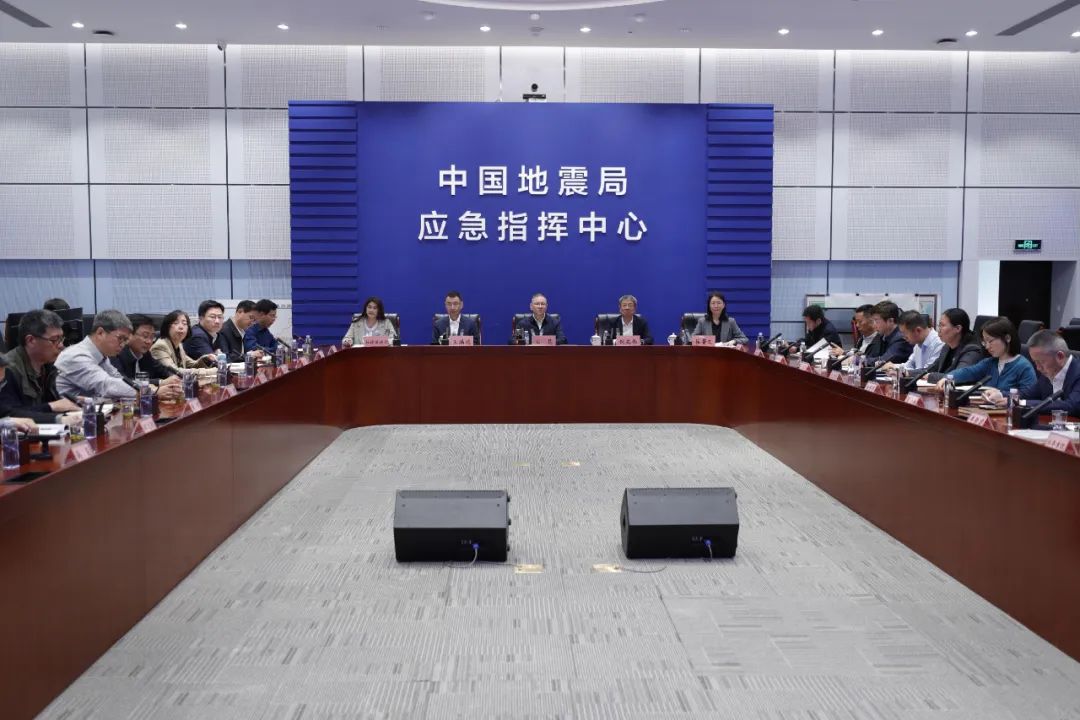Wang Yi Holds Talks with Indonesia's Coordinator for Cooperation with China and Coordinating Minister Luhut Binsar Pandjaitan

On December 5, 2021, State Councilor and Foreign Minister Wang Yi held talks with Indonesia's Coordinator for Cooperation with China and Coordinating Minister Luhut Binsar Pandjaitan in Anji County, Zhejiang Province.
Noting that China-Indonesia relations have kept developing steadily at a fast speed under the strategic guidance of President Xi Jinping and President Joko Widodo, Wang Yi said, the high-level dialogue cooperation mechanism successfully launched by both sides has brought the driving role of politics, economy, cultural and people-to-people exchanges and maritime affairs into full play, and further improved the quality of and upgraded the comprehensive strategic partnership between China and Indonesia. As major developing countries, key emerging economies and comprehensive strategic partners, China and Indonesia have always understood, trusted and supported each other, and the two sides should solidly carry forward pragmatic cooperation across various fields in the direction of building a community with a shared future. The Chinese side fully supports Indonesia in hosting the G20 Leaders' Summit next year, and stands ready to jointly enable the G20 to play an active role in promoting world economic recovery and improving global economic governance.
Wang Yi said, China and Indonesia lead all the way in vaccine cooperation both regionally and globally, setting a model for major developing countries in terms of joint COVID-19 response. Together with Indonesia, China is willing to implement the important initiative of the "China-ASEAN Health Shield" proposed by President Xi Jinping and continue to deepen cooperation on vaccines as well as drug research and development. China supports Chinese enterprises in carrying out technological cooperation with Indonesia to help the country build a regional center of vaccine production and work toward vaccine security and self-reliance in the region.
Noting a year-on-year increase of over 50 percent in bilateral trade volume in the first 10 months of the year, Wang Yi said, the two sides should continuously leverage the Working Group for the Promotion of Unimpeded Trade mechanism and such platforms as the China International Import Expo, the China-ASEAN Expo and the China International Fair for Investment and Trade to boost bilateral cooperation on economy, trade and investment, speed up the construction of the Jakarta-Bandung high-speed railway, the Regional Comprehensive Economic Corridor and the Two Countries Twin Parks, and expand cooperation on green development such as new energy and electric vehicles.
Luhut expressed his warm congratulations on the successful conclusion of the sixth plenary session of the 19th Central Committee of the Communist Party of China (CPC). He believes that China will certainly have a more splendid future under the leadership of the CPC with Xi Jinping at the core. He sincerely thanked China for providing Indonesia with vaccines, drugs and anti-pandemic materials and helping Indonesia realize a high vaccination rate, fully reflecting the friendship of the Chinese people. Indonesia firmly adheres to the one-China policy and opposes any interference in China's internal affairs. Indonesia attaches great importance to and will accelerate cooperation with China on major projects under the Belt and Road Initiative, while stepping up infrastructure, trade and investment, health care, green development and maritime cooperation. Indonesia actively supports the Global Development Initiative and believes that the initiative will give a strong impetus to the G20 so that it can better play its role as a platform for global economic cooperation.
The two sides are satisfied with the broad consensus reached during the talks and expect the holding of the second meeting of the China-Indonesia high-level dialogue cooperation mechanism in Indonesia next year.
Both sides also exchanged views on democracy, agreeing that each country should advance democracy based on its national conditions, with the satisfaction of its people as the criterion, on which the Western countries should not impose their standards.


Follow us on WeChat
京ICP备18041594号-1
京公网安备 11010202005508号

Follow us on WeChat



